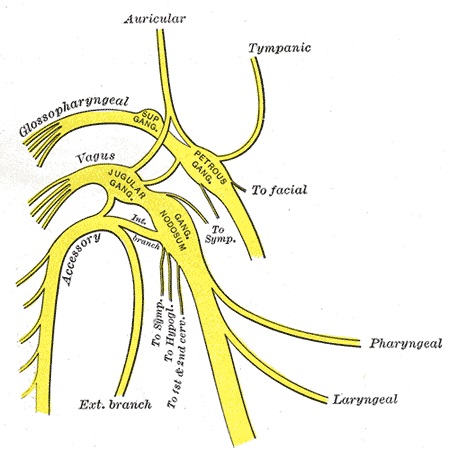The Washington University School of Medicine in St. Louis has released two papers, detailing results on vagus nerve stimulation and depression.
It was a giant study, involving nearly 500 participants at over 80 sites across the United States, and as importantly, it involved patients with severe treatment-resistant depression.
How severe?
The average patient had experienced depression for 29 years, failed different treatments 13 times, 75% had been so sick from it they couldn’t work, and 40% had attempted suicide at least one time in their lives.
In other words, the most depressed of the depressed.
The researchers implanted a device meant to stimulate the left vagus nerve – of course, one group had the device activated, while the control group was set up with an inactivated device.
According to the Cleveland Clinic, vagus nerve stimulation uses electrical impulses to stimulate your left vagus nerve to pass signals to your brain, via a tiny device in your chest.
After a year’s worth of stimulation, 53% of the group receiving the stimulation experienced progress in quality of life measures, as well as “statistically significant, measurable improvements in depressive symptoms and functional outcomes,” according to Dr. Charles Conway, the principal investigator of the trial.
“What’s really important here is that patients themselves were reporting that their lives were improving,” Conway said. “You have a population of people that has been failed by a ridiculously high number of treatments, including very aggressive treatments such as electroconvulsive therapy. And they’re not just saying, ‘Yeah, I feel a little better.’ They’re saying they are seeing meaningful improvements in their ability to function and live their lives. And the nice thing about vagus nerve stimulation, we know from other studies, is that when the patient responds, the effects usually stick.”
Praise the Lord.
Having said that, there are a couple caveats.
The study failed to meet its primary endpoint which was a statistically significant difference on the gold-standard MADRAS scale.
But that’s not uncommon in clinical studies, and the fact it was able to demonstrate differences and improvement in other important measures like quality of life, daily function, and symptom improvement – well, that’s pretty important.
Here’s the other caveat.
The treatment is expensive and yet to be covered by insurance in the United States.
However, the Center for Medicare and Medicaid Services did play a part in the study, and was privy to the results. If they end up covering it, perhaps private insurance will follow suit.
Treatment-resistant depression is a beast, and according to Johns Hopkins affects 30% of people diagnosed with major depressive disorder.
And these participants certainly had it.
Imagine failing 13 treatments, attempting suicide at least once, being so paralyzed by the condition* that you’re unable to work, and suffering for nearly 30 years.
That’s not a spiritual condition – that’s a medical condition.
Praise God for researchers and the medical community which continues to try to serve the suffering, in the tradition of the Great Physician and Christianity, which has been known from its beginning by a remarkably counter-cultural care for the sick.
[Photo: Public domain, By Henry Vandyke Carter – Henry Gray (1918) Anatomy of the Human Body]
If you’re depressed, or struggle with any aspect of mental health…
For readers from the United States….
Find a psychiatrist here.
Find a therapist here.
For readers, internationally, seek help from a local resource.
For salvation, Christ and Christ alone.
*One of the most moving accounts of the paralyzing effects of depression comes from my interview with Pastor Kirby Smith, who goes into great detail about losing his position as pastor for awhile and being so sick with despair he wished he would die.
What worked for him? Medication. Doesn’t mean it will work for everyone, but again, as Dr. Brian Briscoe says, medication can be an agent of God’s mercy for people with mental health conditions. Just like it can for any other medical condition.

